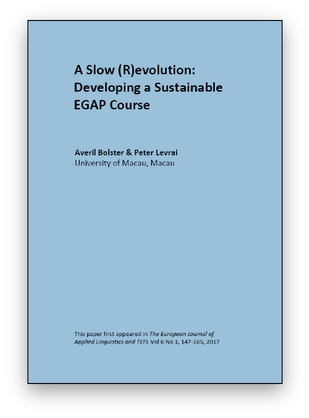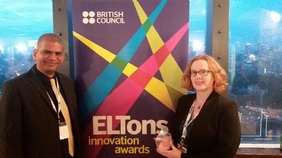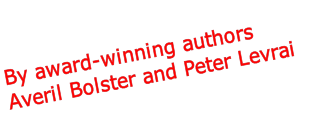



A SLOW (R)EVOLUTION: DEVELOPING A SUSTAINABLE EGAP COURSE



A Slow (R)evolution

A Slow (R)evolution
Developing a Sustainable EGAP Course
Peter Levrai
Averil Bolster
Also available in The European Journal of Applied Linguistics and TEFL Vol 6 No 1,
147-
1 pp 147-
Click or tap on cover to read this article now
This paper discusses an English for General Academic Purposes (EGAP) course developed in the University of Macau, from its first conception in the summer of 2014 through to the latest iteration piloted in the first semester of the academic year 2016-17. The authors demonstrate how the implementation of Backward Design (Wiggins & McTighe, 2005) can lend itself to the EAP sphere and focus on the evolution of the course from year-to-year. They highlight how a course is not a fixed artefact, but rather an ongoing process involving the identification of strengths, weaknesses and emergent outcomes that could be incorporated into later iterations of the course. This adaptive approach has led to a course with a high level of sustainability, flexibility and longevity.
| Overview |
| All Issues |
| Articles |
| Subscriptions |